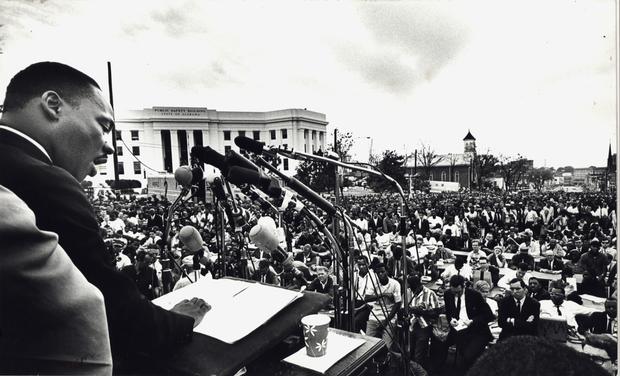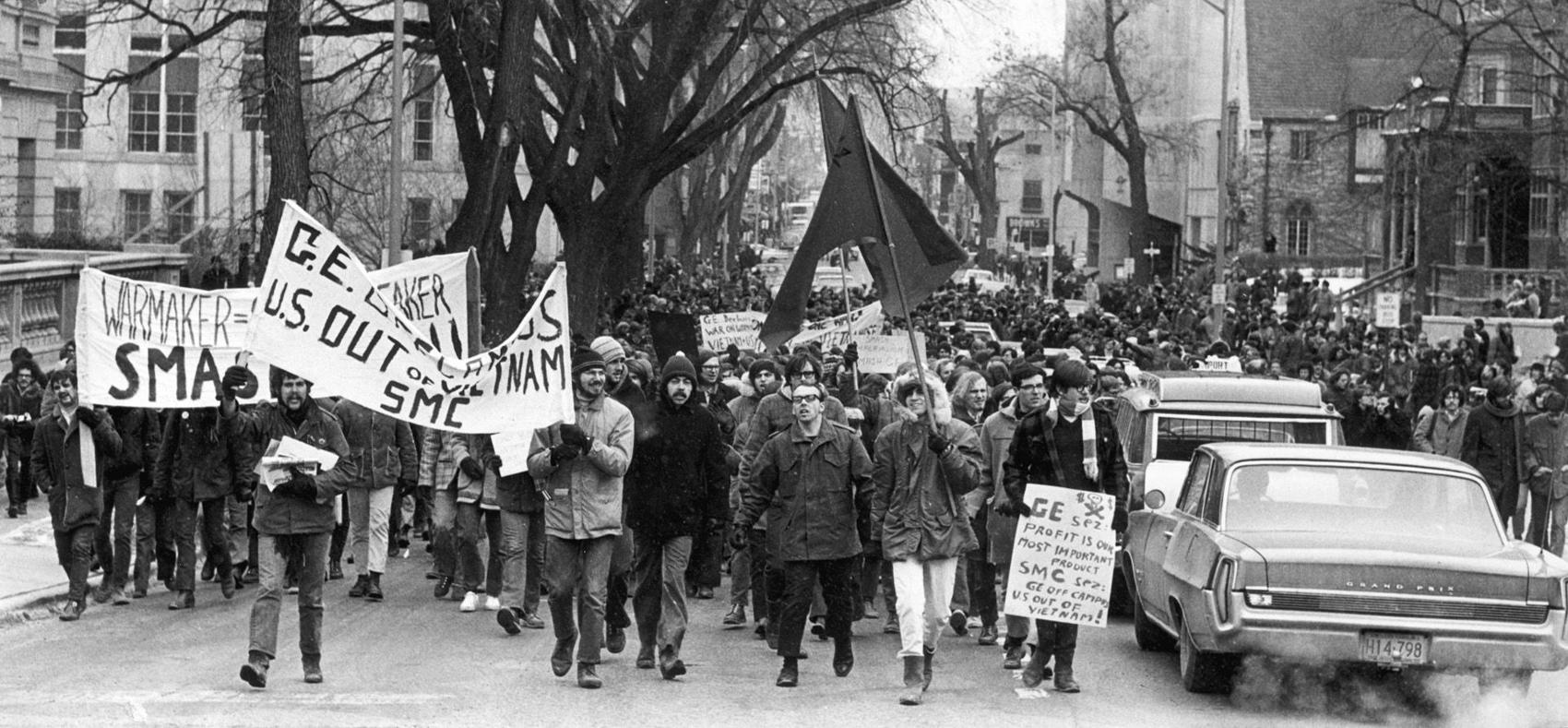Mike Patrick
Posted February 18, 2019
I was not born a socialist nor was I raised in a socialist family. Rather, I became a socialist because of circumstance or happenstance and only after a gradual process of self-awareness, and societal awareness, combined with a fortuitous encounter.
I was raised in what was called at the time a “stone” working class family in a small town on a beautiful lake in southern Wisconsin. But I never heard the term “working class” when I was growing up. My grandmother always told me that our family was “good middle class.” I was raised by my grandmother, grandfather, and bachelor uncle (my mother’s brother). My mother died in 1945 when I was three years old and my father, discharged from the U.S. Army in 1945 after fighting in the Battle of the Bulge during World War II, simply disappeared after my mother’s death.
My grandfather (my mother’s father) had been born in England, grew up in Canada, and became a railroad switchmen in Chicago before he moved his young family in 1912 from Chicago to a small town in Wisconsin where he became a plumber. After World War II and after having worked as a plumber for 33 years, he was earning only $12 a week.
His son, my bachelor uncle, worked as a letter carrier for the U.S. Post Office, a job that he had been fortunate enough to obtain during the Great Depression. After spending two years in college on a football scholarship following his graduation from high school, he was forced to drop out of college because he could not afford to pay for room and board. He moved to Chicago where he got a job in a paint factory. But he lost his job after the stock market crashed in 1929 and had no choice but to move back to his parents’ home in the small Wisconsin town where he had grown up. He worked as a construction laborer until 1936 when he passed a civil service exam and become a letter carrier. He was drafted into the U.S. Army in 1942 shortly after the U.S. entered World War II. Following his discharge from the Army in 1945 he returned to the small town in Wisconsin and resumed his job as a letter carrier.
I remember reading as I was growing up my grandfather’s and uncle’s union magazines when they arrived in the mail each month — The Plumber and Pipe Fitter and the magazine of the Letter Carriers union. In 1960 after I got a job at the Post Office I joined my first union, the National Association of Letter Carriers.
My grandparents and uncle were Democrats and, as I was growing up, I considered myself to be a Democrat. I recall that in all of the mock elections in my elementary school classes, when hands were raised and the vote counted, the results were always Republicans 30, Democrats 1. I was the lone student to vote for the Democrats. I had, after all, grown up in rock-ribbed Republican Walworth County. In the spring of 1960, just before the Wisconsin primary, John F. Kennedy came to my home town to speak. The administrator of my high school refused to allow students to leave school to listen to him speak, but my social studies teacher let me and a few of my buddies out of school to hear him, so I got to meet Kennedy and discuss politics with him.
As I was growing up I made money by selling and delivering newspapers, working during the summers at a refreshment stand on the lake shore operated by the American Legion, and washing dishes on the third shift (11:00 pm to 7:00 am) at a local restaurant. My grandfather died in 1957 and my uncle died in 1959 so my “family” was reduced to my elderly grandmother and me. In 1959 during my senior year in high school, I was fortunate enough to get a job working at the local Post Office. After graduating from high school in 1960 I enrolled at a nearby state college while keeping my job working at the Post Office. I could not afford to attend the prestigious University of Wisconsin in Madison.
The beautiful lake upon which my small town was located was ringed with the estates and large “summer mansions” of very wealthy Chicagoans. Most of them were very aloof and arrogant, with the exception of the chewing gum magnate, P.K. Wrigley. Like most of my working class buddies, I had an ambivalent attitude about the rich. On the one hand, I despised them. But on the other hand, I envied them. I had no idea how they had gotten to be so rich and simply assumed that they deserved their wealth.
I resolved that somehow, someday I too would become rich. And working at the Post Office (at the same time as I commuted to classes at the nearby state college) for a “man’s wages” of $2.93 an hour, I managed to accumulate what I considered to be a “small fortune.” With the money that I made by working 80 hours a week at the Post Office, I bought a beautiful “baby blue” MG convertible sports car. Driving my new sports car, I was sure that I was well on my way to becoming rich.
But my aspirations to become rich would soon come to naught. In my sophomore year at the state college, I took a political science course taught by a young faculty member with a Ph.D. from the University of Chicago. As I listened to his lectures, especially those that he gave explaining socialism, a whole new vista began opening for me. I had never read any books by Karl Marx, Frederick Engels, Lenin, Luxemburg or Trotsky, nor had any of these books been assigned as class readings. The class readings that I can recall included C. Wright Mills’ The Causes of World War III and Seymour Melman’s The Peace Race. But my professor’s lectures explained the limitations of the economic system under which we all lived — capitalism — and the virtues of another type of political and economic system called socialism.
My professor also established a new campus “club” called the “Peace Studies Club” that met at his and his wife’s home. I entered a whole new world. On their record player, my professor and his wife played songs by Woody Guthrie, the Weavers, Pete Seeger, and Joan Baez. The book shelves in their apartment were filled with books by Marx, Engels, Lenin, Luxemburg and Trotsky. On the walls were hung prints of paintings by Monet, Manet, and Renoir. Lit candles stuck in Chianti bottles cheerfully brightened up the rooms.
Four other students besides myself had come to the first meeting of the “Peace Studies Club.” One of the students was from nearby Janesville, Wisconsin, where his father was an official in the United Automobile Workers Union at the huge GM plant located there. I later learned that his father was member of the Communist Party. He and I soon became close friends. I also later learned that my political science professor had been a member of an organization at the University of Chicago called the “Young People’s Socialist League” (YPSL). Much, much later I learned that a good friend of his in the YPSL chapter at the University of Chicago was named Bernie Sanders, who would become very well-known a half century later.
Over the course of the school year while participating in weekly discussions at the meetings of the “Peace Studies Club,” the ambivalence of my attitude toward the rich began to dissolve. I realized that I would never become rich unless I won the lottery, and that being rich was not a meaningful way to live a life. I learned why the rich were rich, why capitalism was a very bad political and economic system and why it had to be replaced by a better political and economic system, a system called socialism.


Eventually I transferred to the University of Wisconsin in Madison where I became involved in the movement against the war in Vietnam. In 1965 I dropped out of the University of Wisconsin and went to Alabama where I became active in the Civil Rights movement. I later taught high school in Racine, Wisconsin. Upon returning to Madison, I got a job and became active in the labor movement as an officer of and a steward in a public employees union and a delegate to the Madison Federation of Labor. Later I worked in construction and became a member of the Laborers International Union.
I joined the Young Socialists Alliance and became the leader of the Madison local of the YSA. After I got a job in Evanston, Illinois, I became a founder of and an activist in the Evanston Committee on Central America as well as an active member of the Socialist Workers Party in Chicago.
In 1986, I became a founding member of the socialist organization, Solidarity, and am still a member of Solidarity. And I am also a member of the Democratic Socialists of America (DSA).
As I approach the age of 80, I find myself frequently reflecting on the political experiences of the life that I have had. I recall listening with fascination to accounts of their lives by veteran members of the Socialist Workers Party, including Ray Dunne, who was one of the leaders of the 1934 General Strike in Minneapolis, Farrell Dobbs, Fred Halstead, Dorothy Schultz and Hedda Garza, among many others. While the half century that I have been a socialist has not been as propitious a time for socialists as the 1930s were it was nonetheless an interesting and occasionally, exciting time.
If I had to identify some of the highlights and most rewarding aspects of my political life over the past half century, they would include my involvement in the Civil Rights movement in the South, my involvement in the movement against the U.S. war in Vietnam in Madison, Wisconsin, and my involvement in the movement against the U.S. effort to suppress the struggle for social, political, and economic justice in Central America.
In particular, being a participant in the Civil Rights struggle in Selma, Alabama, in 1965, helping to facilitate the March from Selma to Montgomery, Alabama, and being on the platform at the State Capitol with Martin Luther King. And in Madison, Wisconsin, building the huge marches against the war in Vietnam and being a leader of the two city-wide referenda against the war, the second of which won 66% of the vote. And in Evanston, Illinois, being a founder and leader of the Evanston Committee on Central America and building opposition to the U.S. intervention in Central America.
All things, considered, I have had a very rewarding political life as a socialist activist. I am confident that the present and future generations will carry forward the vision of and struggle for a socialist world in which capitalism, imperialism, racism, and sexism have been vanquished.
Mike Patrick is a member of the Milwaukee branch of Solidarity.

Comments
One response to “How I Emerged from the Working Class and Became a Socialist”
Thanks for this excellent memoir. I assume you don’t mind if I share it. Best wishes, Earl Silbar
BTW, former member of ypsl in Boulder, CO.